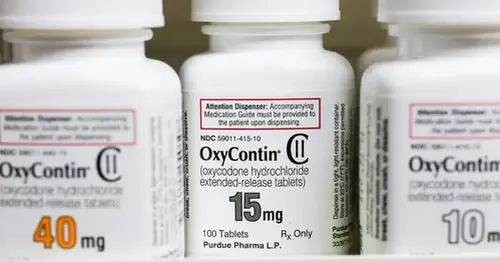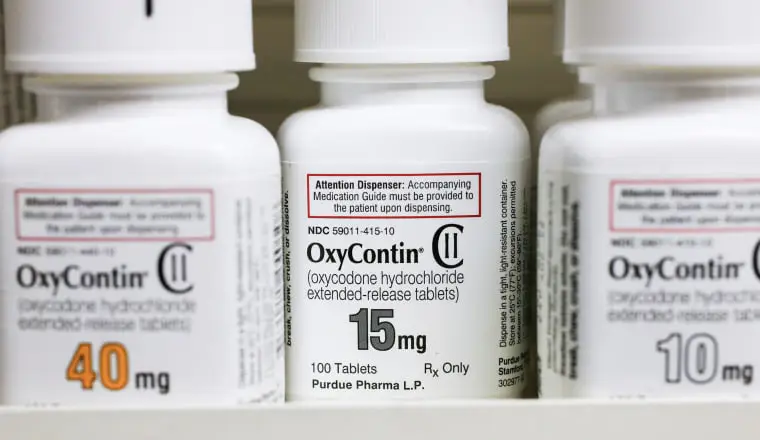
Supreme Court puts Purdue Pharma bankruptcy deal on hold over Sackler provision
WASHINGTON — The Supreme Court put the bankruptcy reorganization of opioid maker Purdue Pharma on hold Thursday, granting an emergency request from the Biden administration that raised objections about a provision that protects the Sackler family from liability for lawsuits.
The justices, in a brief order with no dissenting votes noted, blocked an appeals court decision that allowed the bankruptcy to move forward. As part of the deal, the Sackler family, which controlled the company, had agreed to pay $6 billion that could be used to settle opioid-related claims but only in return for a complete release from any liability in future cases.
The court also agreed to take up the government's appeal, meaning it will hear oral arguments in December and likely issue a ruling early next year.
The legal question raised is whether the bankruptcy court had the authority to release the Sackler family members from the claims being made by opioid victims.

A Purdue spokesperson said in a statement that the company is "confident in the legality of our nearly universally supported plan of reorganization, and optimistic that the Supreme Court will agree."
Purdue made billions from OxyContin, a widely available painkiller that fueled the opioid epidemic. The company's tactics in aggressively marketing the drug came under increasing scrutiny as thousands of people died from opioid overdoses in recent years.
In asking the Supreme Court to intervene, Solicitor General Elizabeth Prelogar noted that Sackler family members had withdrawn $11 billion from the company amid an effort to shield themselves from liability.
Purdue itself sought bankruptcy protection but the Sackler family members did not. Instead, they negotiated a separate deal with Purdue and some plaintiffs that would allow the company to reinvent itself in an effort to combat the opioid crisis.
Prelogar wrote that bankruptcy law prohibits such an arrangement, saying it "constitutes an abuse of the bankruptcy system" that is unfair to potential plaintiffs who did not agree to the release of the Sackler family claims.
In a May decision, the New York-based 2nd U.S. Circuit Court of Appeals approved the plan over the objection of William Harrington, the U.S. government trustee monitoring the bankruptcy. The Justice Department's trustee program of which Harrington is part is aimed at ensuring that the bankruptcy system operates as required under law.
Purdue's statement criticized Harrington's role, saying that, despite having no concrete interest in the case, he has "been able to single-handedly delay billions of dollars in value that should be put to use for victim compensation, opioid crisis abatement for communities across the country, and overdose rescue medicines."
Eight states and the District of Columbia had initially opposed the plan, but they eventually signed on to a renegotiated agreement and did not join the Biden administration in asking for the deal to be blocked.
A group representing 60,000 people seeking compensation filed a brief at the Supreme Court backing the plan.






